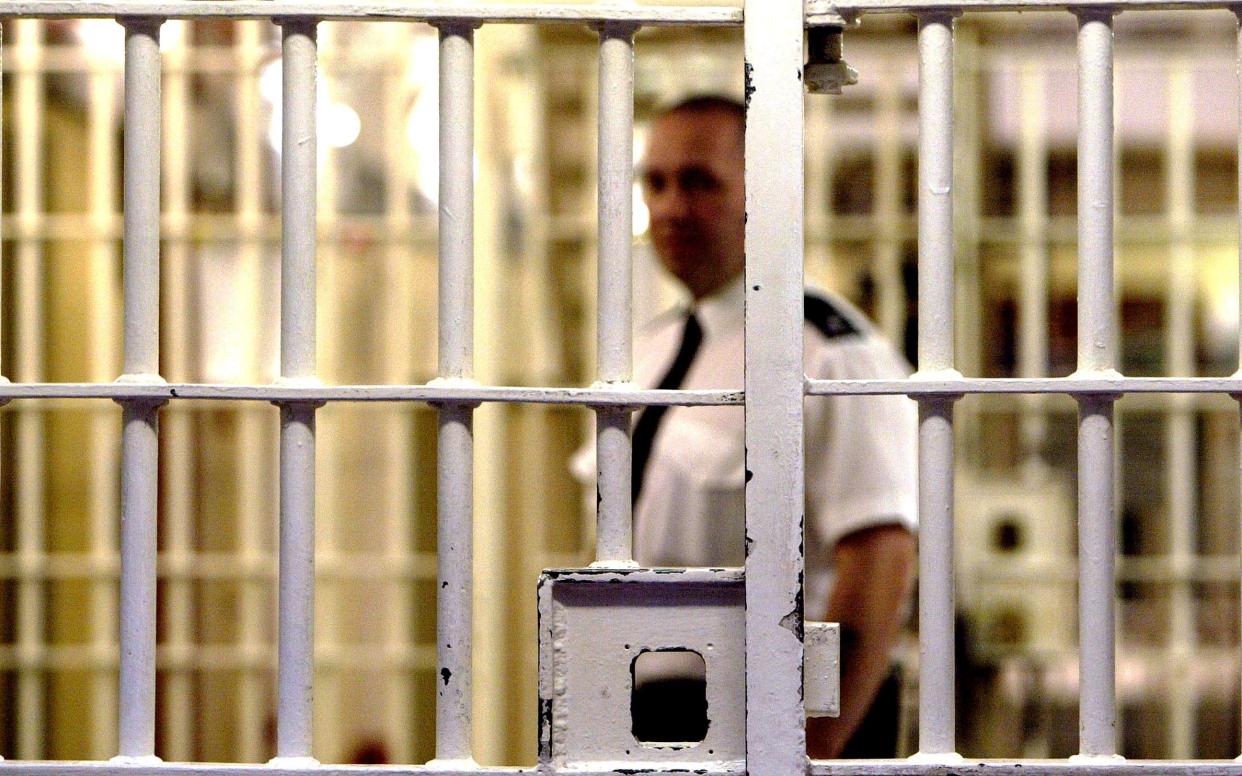‘Real danger’ convicted offenders may have to serve time at home

An incoming government may have to put convicted offenders under house arrest rather than jailing them because prisons are running out of spaces, a leading think tank has warned.
The Institute for Government (IfG) said the new ministers would have to introduce emergency measures within weeks or even days which would “increase the risk to the public” but were necessary because of the “real danger” of having no prison spaces for jailed criminals.
Alex Chalk, the Justice Secretary, has already introduced the release of prisoners up to 10 weeks early, delayed court hearings and commissioned police cells to hold the overflow of offenders.
But the IfG warned these would not be enough and instead set out an additional three-point plan to tackle overcrowding including introducing a “queuing system” for offenders handed custodial sentences.
This would mean lower-risk offenders would not be immediately jailed but would be placed under house arrest with electronic tags until a prison place became available.
“The time spent in home detention could count towards a prisoner’s sentence, to avoid a growing backlog. If they breached conditions, they could be sent to prison immediately,” said the IfG.
“If they do not, and a space does not become available for the duration of their sentence, they could have served their sentence without entering prison. This would prioritise prison places for the highest risk, while taking a more lenient approach to those who are lower risk.”
Sir Keir Starmer, the Labour leader, said he will not be able to say he has “magicked up a new prison on Friday morning” to deal with early releases.
Sir Keir told the BBC: “This has got to be a problem we’ll inherit if we are privileged to come in to serve and I’m not going to sit here and pretend to you that I can build a prison on the first day of the Labour government.”
The Labour leader said “in all likelihood” he would have to continue with the early release scheme.
“I have to say it’s shocking to have to inherit a problem like that, that our criminal justice system has gotten to a point where we’re releasing prisoners who should be in prison early and giving instructions to the police not to arrest in certain cases. That is how broken the system [is].”
The IfG also recommended releasing thousands more offenders earlier by lowering the point of automatic release for most offenders from 50 per cent through their sentence to between 40 per cent and 45 per cent.
“This is the lever that delivers the greatest capacity the quickest, as it can be done in weeks. Lowering automatic release below 50 per cent would mean criminals spend more time on licence in the community than they do in prison, which would likely damage public confidence in the system,” said the IfG.
“However, it would not apply to the most serious violent and sexual offenders, who currently serve two-thirds of their time in prison and would continue to do so. This would limit the public safety risk, and the risk from being unable to put serious offenders in prison is far greater.”
A third measure would allow courts to increase the length of suspended sentences from two to three years, which would mean more offenders would avoid jail. The IfG said most criminals (62 per cent) jailed for two to three years committed non-violent crimes.
It said proposals to axe sentences of under 12 months and replace them with suspended sentences would only reduce the prison population by a few hundred offenders but could cut reoffending. This was proposed by Rishi Sunak but shelved amid a backlash from Tory MPs who believed it was going soft on criminals.
Other options included reducing or removing supervision of offenders after they were released from sentences of under 12 months, which the IfG said would cut the number of recalls, and prioritising defendants on remand for court hearings.
The number of prisoners on remand has nearly doubled to 16,000.
Cassia Rowland, the report’s author, said: “The new government will not have the luxury of time to decide how to respond to the crisis in prisons. Current emergency measures are both risky and insufficient.
“Implementing these short-term options – perhaps within days of the general election – is absolutely critical to avoid a looming emergency and to win the breathing space needed to develop longer-term solutions.”
The prison population stands at just over 87,000 – increasing by 13 per cent just in the last three years – and is predicted to hit 99,300 by the end of next year.
The IfG said the next government needed to develop a long term strategy as the 4,400 planned new spaces were nowhere near enough to house the extra 12,000 more prisoners.
“The emergency measures set out in this paper will only buy so much time,” it said.



